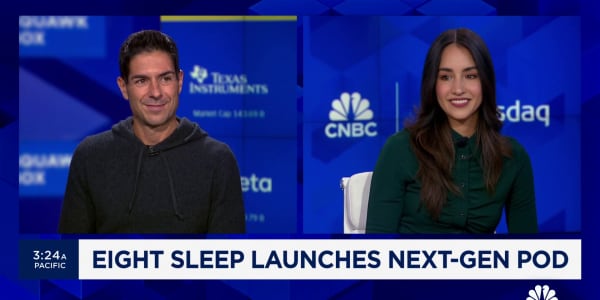Recapping the day's news and newsmakers through the lens of CNBC.
Notes:
Is tapering off the table? It's too soon to say that, but a reduction of the Fed's quantitative easing program, considered all but a done deal before the FOMC's September meeting, may not come this year at all—or early in the New Year, either—some experts insist.
Weak economic data and President Obama's nomination of Fed Vice Chair Janet Yellen to succeed Chairman Ben Bernanke are factors. It would be poor form for Bernanke to stick Yellen with a new policy as he heads for the door. And since Yellen has supported the QE program, there's no reason to expect a big change from her right out of the gate.
Quote:
"Let's be absolutely clear—everyone already knew that [the next Fed chair] was going to be Yellen. That was already baked in the cake when they had the FOMC meeting [in September]. She was the de facto next Fed chairman at that point..... [Bernanke said, effectively:] 'You'll decide when to taper.'"—Mary Beth Fisher, head of U.S. rates strategy at Societe Generale
The great refinance boom going bust, by the numbers
Notes:
Wells Fargo's third-quarter results tell a simple tale: a big bank does perfectly well, until it's hammered by events beyond its control. The problem is that rising interest rates left homeowners with little incentive to refinance, causing Wells Fargo to issue just $80 billion in mortgages in the quarter, down from $139 billion a year earlier. Despite that, the bank reported a 13 percent rise in earnings as other lines, such as trust and investment fees, gained steam. As banks start reporting, many are likely to show damage from the cooling of refinancing. Loan originations for home purchases could also suffer if rates rise, making homes less affordable.
Quote:
"There's a rule of thumb that for about every 100 basis points increase in mortgage rates, [housing] affordability goes down by about 10 percent. So, you know, at a time when we're supposed to be in a recovery, higher rates at the long end of the curve aren't helping things."—R. Scott Siefe, bank analyst, Sandler O'Neill & Partners LP
Jamie Dimon's 'give up without a fight' budget
Notes:
When storm clouds gather, best keep some powder dry, and JPMorgan Chase has a lot of dry powder—$23 billion. That, the bank said today, is the amount put aside for potential costs related to lending and trading investigations and lawsuits. The bank reported a loss for the third quarter due to $9 billion in costs related to those problems. CEO Jaime Dimon, once defiant on these issues, said today that the bank would rather settle than fight.
Quotes:
"While we expect our litigation costs should abate and normalize over time, they may continue to be volatile over the next several quarters."—JPMorgan CEO Jaime Dimon
"They basically put away one quarter's worth of earnings."— Marty Mosby, banking analyst at Guggenheim Partners
Please give .... more
Notes:
The wealthier you get, the more you can give to charity. In fact, it's pretty much expected. But Americans, while they gave an impressive $316 billion last year, aren't really "giving until it hurts," as many charities think they should. A study by The Chronicle of Philanthropy finds that people making $200,000 or more give just 2.8 percent of their income, while the average millionaire gives just 7.5 percent of his or her estate.
How come? Another study says the wealthy most often cite their fear that "my gift won't be used wisely." The number two reason: "lack of knowledge or connection to a charity." Third: "fear of increased requests from others."
But are respondents dressing up their motives? It's possible. Their advisors said the main reasons clients cited were wanting to leave money to heirs and to have as much as possible for themselves.
—By Jeff Brown, Special to CNBC.com




